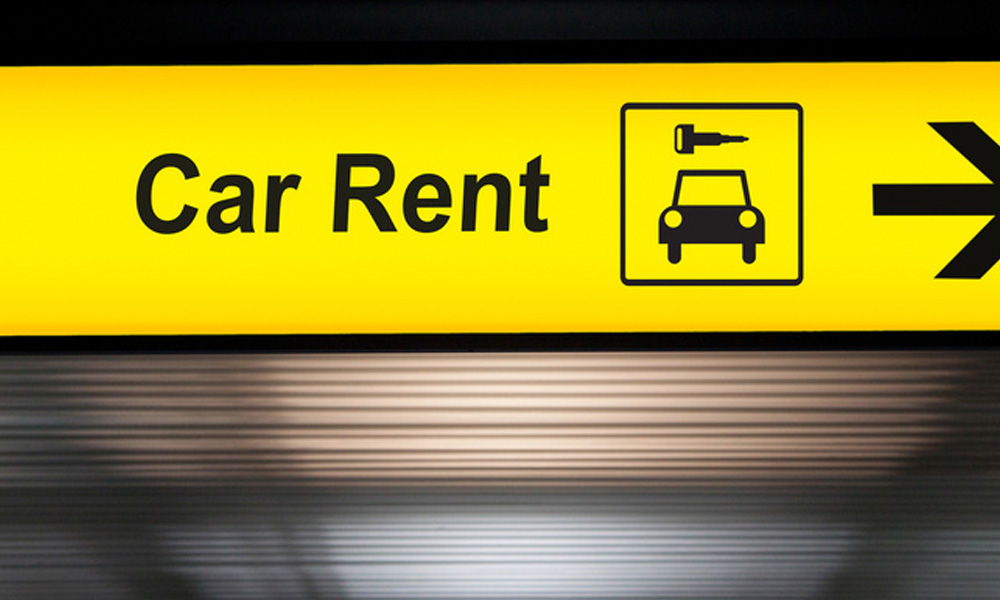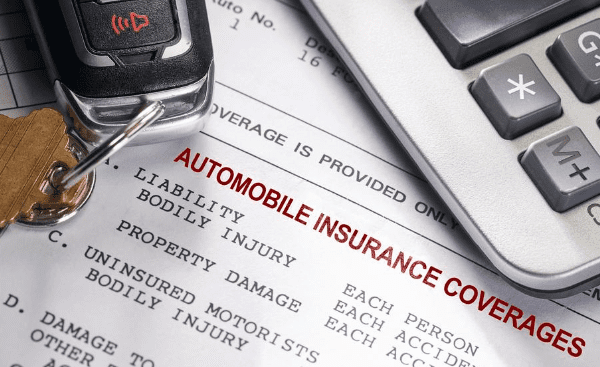
Whenever you’re filling out paperwork for a rental car, you get the inevitable questions about additional insurance coverage. Is it a smart investment or a waste of money?
As with so many other insurance-related questions, the correct answer all comes down to your budget and risk tolerance. The following three scenarios provide information to help you make the right decision the next time you rent a car.
Scenario 1: You did not purchase coverage from the rental car company, and you had an accident. What happens now?
If you decline the insurance offered by the rental car company and then get into an accident, you’ll have to look to your personal auto policy for help.
Not all auto policies are created equal. Also, your policy’s response to an accident in a rental car may vary based on state law. You should always consult your insurance professional for specific coverage information, but here are some general guidelines.
Liability coverage
If you hurt people, damaged other people’s cars or personal property or totaled the rental car, you are liable for the costs of repair, replacement and/or medical care – and potentially lost wages and lost revenue from the rental vehicle.
The good news is the liability section of many personal auto policies covers expenses resulting from bodily injury and/or damage to the property of others. However, that section is often subject to limitations and likely will not cover damage to the rental car or loss-of-use costs for the rental car company. Regarding liability coverage, consider the following:
Adequacy of limits
Many drivers purchase a personal auto policy that includes only the minimum amount of liability coverage required by state law. Such a limit is often insufficient to fully cover expenses resulting from liability.
For example, assume your state requires a minimum limit of personal liability insurance of “25/50/10” and this is what you’ve selected. “25/50/10” means the maximum payable for bodily injury expenses incurred by someone you injured in the accident is $25,000. If you hurt more than one person, the maximum payable for the entire accident is $50,000. Finally, the maximum payable for expenses resulting from damage you caused to someone else’s property is $10,000.
Is $25,000 sufficient to cover claims of bodily injury, which may include a person’s medical bills, disability expenses, pain, suffering, and rehabilitation? Is $10,000 sufficient to cover costs to repair/replace someone else’s car or other damaged property? While it’s impossible to predict the severity of an accident before it happens, these limits could be considered somewhat low, given today’s expensive cars and escalating medical costs. Any extra will come out of your pocket.
You should think about the following:
Consider increasing your auto policy’s liability limits. Insurers often allow for significant increases in limits at a low additional cost.
In addition to increased liability limits on the auto policy, consider personal umbrella insurance. Such a policy often responds to accidents in the same way as the auto policy and includes more dollars for claims expenses.
If you are offered it, review and consider supplemental liability insurance from the rental car company. Such insurance is typically available for the term of the rental but will be subject to many conditions, so you should carefully review it. For example, it might not cover an accident caused while a person not specifically named on the rental agreement is driving the car.
Damage to the rental car itself
You should review your personal auto policy and consult with the agent and/or insurer to identify which specific section of the policy will address damage to the rental car itself, as well as the rental company’s resulting losses.
A few states require insurers to cover such costs under the policy’s liability section. However, in a majority of states, the insurer will exclude such claims under the liability section of the policy and instead address them in the “physical damage” section. Some insurers simply don’t cover these costs.
Physical damage coverage
“Physical damage” is a term often used to describe the various coverages in an auto policy that are specific to the repair/replacement of the car if it’s damaged or stolen. Many insurers refer to such coverages specifically as “collision” and “comprehensive.”
Here are five common concerns:
- While most drivers have liability coverage included in their auto policy, some do not have “physical damage” coverage. (Drivers sometimes drop this coverage when their vehicle is paid off.) If your personal auto policy does not include this coverage for at least one owned car, it likely will not cover damage to a rental car.
- If your auto policy does not include the “physical damage” coverage required to address the nature of the damage to the rental car, you as the renter are responsible for covering such costs out of pocket. For example, if the rental car is damaged in a collision but the policy covers only “comprehensive” or non-collision losses, the policy will not pay for the damages to the rental car.
- If your auto policy covers the damage to the rental car, any claim payment is subject to the policy’s deductible, which likely will result in an out-of-pocket expense to you.
- If your auto policy covers the damage to the rental car, it likely will pay costs based only on that car’s actual cash value at the time of the accident. This may prove insufficient depending on the nature of the damage. For example, if the car is totaled in the accident, the rental car company may need to replace it. You would have to pay any difference between the actual cash value of the damaged car and the replacement cost.
- Your auto policy will likely limit or exclude payment for any expenses imposed by the rental company – for example, costs associated with the rental company’s lost revenue, costs to transport the damaged vehicle and/or replacement vehicle, etc.
Policy exclusions
Each section of an auto policy – liability, physical damage, etc. – contains exclusions for certain accidents or use. For example, what if the rental car is used for business purposes? What if it’s operated outside of your policy’s coverage territory?
You should review your personal auto policy and consult with your agent or insurer to identify any possible exclusions before renting a car. The best advice is to research the rental car company’s coverage in advance of your travels and go over it with your insurance professional to see if you will have any gaps.
Scenario 2: You purchased coverage from the rental car company, and you had an accident. What happens now?
Some rental companies offer several insurance options. These may include supplemental liability insurance, insurance for damage to your own personal property, travel insurance and others. The most common insurance is that offered specifically for the rental car itself, often called a “Loss/Collision Damage Waiver.”
The main purpose of the waiver is to absolve the renter of the insurance concerns discussed previously. It typically serves as primary coverage for an accident, and it allows you to handle the damage claim with the rental company rather than with your personal auto insurer. It typically covers all expenses related to the damage, thus removing your obligation to pay any costs out of pocket.
The waiver will have terms that – if violated – will negate it and put your personal funds at risk. For example, the waiver may require that the car be driven only by a specifically listed person, that it be driven only within a defined territory, and that no traffic laws are violated, among many other possible use restrictions. Should your use of the rental car violate the terms of the waiver, you would be personally responsible for any damage expenses.
Scenario 3: Another party – such as a credit card provider – says they will provide insurance for your rental car. Is it safe to rely on this?
Maybe. Credit card companies, auto clubs and others may offer rental car insurance as a benefit. In some cases, this insurance is a substitute for the rental company’s damage waiver and works in the same manner. However, in other cases, there may be significant differences.
For example, such coverage may act only as excess coverage to your auto policy after a claim with your insurer has been filed. Third-party insurance products can be risky, and they must be carefully reviewed before relying on them as a substitute for rental car insurance.
The bottom line
As a general rule, limitations in the coverage contained in your personal auto policy generally encourage the purchase of other insurance, such as that offered by the rental company. It may seem like a big expense, but that’s where the issue of risk tolerance comes in.
Whether you are risk-averse or a risk-taker, always read the entire rental insurance policy and clarify any concerns in writing. You may also want to consult with your insurance professional before you head out on your trip.
The time to discover the extent of your coverage is before you accept or deny any additional coverage – not after you get into an accident with your rental car.





